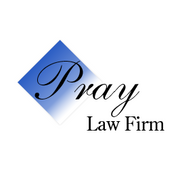
No two families or businesses are alike, and neither are their financial difficulties. Fortunately, the bankruptcy code offers a variety of options for borrowers and organizations, and the one best for you depends on your circumstances. After evaluating your financial situation, your attorney can walk you through the options and help select the right program.
3 Common Types of Bankruptcy
Chapter 7
Chapter 7 bankruptcy allows borrowers struggling with unsecured debt to wipe the slate clean and start over. In exchange for discharging a wide variety of debts, including credit cards and unpaid medical expenses, the trustee of the court has the right to seize some of your property to pay off your creditors. However, the code allows you to exempt a broad spectrum of assets, including equity in your house or car, any tools you need for work, and some jewelry.
Chapter 13
 Along with allowing you to discharge most unsecured debts, chapter 13 also gives you the chance to catch up your secured accounts with a court-managed payment plan. If you have sufficient income, chapter 13 can help you avoid foreclosure and keep your car while you get your finances back on track.
Along with allowing you to discharge most unsecured debts, chapter 13 also gives you the chance to catch up your secured accounts with a court-managed payment plan. If you have sufficient income, chapter 13 can help you avoid foreclosure and keep your car while you get your finances back on track.
Chapter 11
Chapter 11 is much like chapter 13 for businesses, allowing them to continue operating while paying down debts under a payment plan. To make the organization profitable again, the court may allow your business to renegotiate or cancel contracts, discharge certain debts, and consolidate operations.
The legal team at Pray Law Firm PA concentrates on helping borrowers and businesses throughout Little Rock, AR, get the debt relief they need. If you’re struggling with unmanageable debt, rely on their expertise to guide you toward the right bankruptcy program. Visit their website to learn more about their bankruptcy services, call (501) 771-7733 to schedule a consultation, and like them on Facebook for regular news and updates.
About the Business
(3 reviews)
Have a question? Ask the experts!
Send your question

